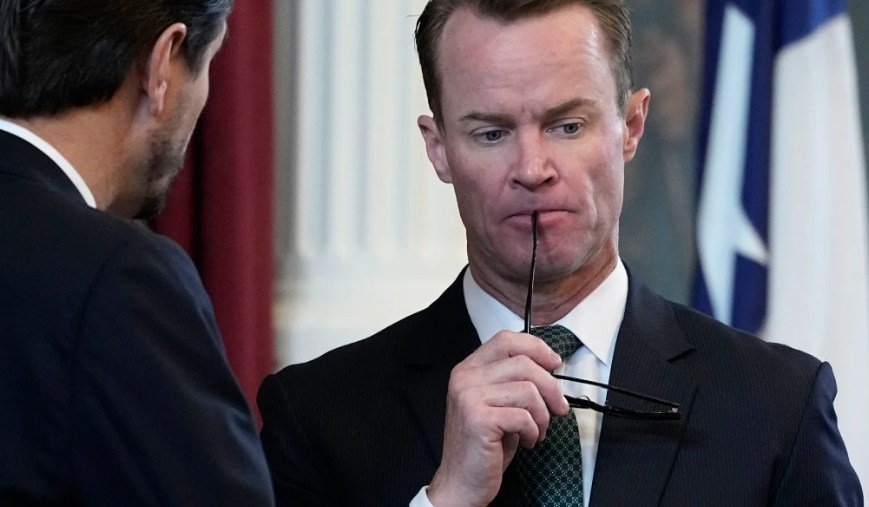The Supreme Court Ruling
On Tuesday, March 5, 2024, the U.S. Supreme Court ruled in favor of Texas Governor Greg Abbott and Attorney General Ken Paxton, who had sued the House Democrats for leaving the state in July 2023 to block a controversial voting bill. The court’s 6-3 decision, along the ideological lines, upheld the authority of the Texas House Speaker to issue arrest warrants for the absent lawmakers and compel them to return to the Capitol. The court also rejected the Democrats’ claim that their walkout was protected by the First Amendment right to free speech and assembly.
The ruling was a major blow to the House Democrats, who had hoped to stall the voting bill until the next legislative session in 2025. The bill, which was passed by the Republican-controlled Senate in August 2023, would impose new restrictions on voting access, such as banning drive-through and 24-hour voting, limiting mail-in voting, and enhancing the role of partisan poll watchers. The Democrats argued that the bill would disproportionately affect the voting rights of racial minorities, people with disabilities, and urban residents, who tend to vote for the Democratic Party.
The Supreme Court’s decision was welcomed by Abbott and Paxton, who had accused the House Democrats of shirking their constitutional duties and wasting taxpayer money by fleeing to Washington, D.C. They also claimed that the Democrats’ absence had prevented the House from passing other important bills, such as funding for public education, health care, and border security.

The Reaction from the House Republicans
The House Republicans also celebrated the Supreme Court’s ruling, which they said vindicated their efforts to uphold the rule of law and the integrity of the elections. They praised Abbott and Paxton for their leadership and courage in pursuing the lawsuit and defending the state’s sovereignty. They also expressed their eagerness to resume the legislative session and pass the voting bill, which they said would ensure fair and secure elections in Texas.
The House Republicans also attacked the House Democrats for their “irresponsible and cowardly” behavior, which they said had harmed the interests of the Texans and the democracy. They accused the Democrats of abandoning their constituents, violating their oaths of office, and obstructing the legislative process. They also called for the Democrats to face the consequences of their actions, such as fines, censures, or even expulsion from the House.
The Response from the House Democrats
The House Democrats, on the other hand, expressed their disappointment and dismay at the Supreme Court’s ruling, which they said undermined the democratic principles and the constitutional rights of the Americans. They denounced the ruling as a “travesty of justice” and a “political coup” orchestrated by the conservative majority of the court, which they said had sided with the “authoritarian and anti-democratic” agenda of the Texas Republicans. They also vowed to continue their fight against the voting bill, which they said was a “voter suppression” and a “power grab” by the Republicans.
The House Democrats also defended their decision to leave the state, which they said was a “last resort” and a “necessary sacrifice” to protect the voting rights of the Texans and the Americans. They argued that they had fulfilled their constitutional duties by representing the voices and the will of their constituents, who had overwhelmingly opposed the voting bill. They also claimed that they had used their time in Washington, D.C. to lobby the federal government and the Congress to pass the federal voting rights legislation, such as the For the People Act and the John Lewis Voting Rights Advancement Act, which would override the state-level voting restrictions.
The Implications for the Future
The Supreme Court’s ruling has set the stage for a showdown between the Texas Republicans and the House Democrats, who are expected to return to the state soon. The House Speaker has already issued arrest warrants for the absent lawmakers, who could face civil or criminal penalties for their walkout. The House Republicans have also indicated their intention to pass the voting bill as soon as possible, before the end of the current legislative session on March 31, 2024. The House Democrats, however, have not given up their resistance, and have hinted at possible legal challenges or further walkouts to prevent the bill from becoming law.
The ruling has also raised questions about the future of the voting rights and the democracy in Texas and the nation, as the state-level voting restrictions and the federal voting rights legislation remain in a deadlock. The ruling has also highlighted the ideological divide and the partisan polarization in the Supreme Court, the Congress, and the public opinion, which could have significant implications for the upcoming midterm elections in November 2024.

Comments